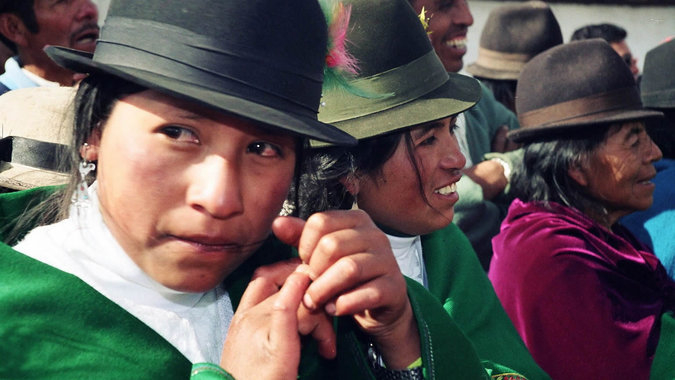ECLAC Will Present Report on Indigenous Peoples at World Conference in New York
Work area(s)
Document brings together updated information about progress on the rights of indigenous groups in Latin America.

(1 September 2014) The Economic Commission for Latin America and the Caribbean (ECLAC) will launch a special report during the World Conference on Indigenous Peoples that will take place September 22-23 in New York, in the context of the United Nations General Assembly. The document will present an analysis focused on Latin America that will contribute to exchanging viewpoints and best practices to guarantee respect for indigenous peoples´ rights.
This report, which will be available as of September 23 on ECLAC's website, was prepared at the request of the Permanent Forum on Indigenous Issues (UNPFII) and the Continental Network of Indigenous Women of the Americas platform (ECMIA). Its purpose is to gather updated information on the progress and challenges seen in terms of indigenous peoples' rights in Latin America and identify and propose actions post-2014, which will be debated at the conference.
The study contains updated figures on the indigenous population, their processes of internal and international migration, and the specific situation of women and children, as well as their access to health care and education, among other indicators. In addition, it highlights information on international standards and state legislation related to the protection of these peoples' rights, their demands for autonomy, and the participation of indigenous organizations in different spheres of representation.
In that regard, the report points out that in the last decade there has been progress in the political participation and recognition of indigenous peoples' territorial rights, as well as in their living conditions, which has been reflected for instance in a decline in infant mortality and greater access to and permanence in the education system. However, the study warns inequality still affects indigenous peoples and that challenges remain in order to effectively protect and guarantee their rights.
The holding of the high-level plenary meeting to be known as the World Conference on Indigenous Peoples was agreed in December 2010 by the United Nations General Assembly and will be made up of two plenary sessions-the opening and closing sessions-three roundtables, and an interactive colloquium. The results of this meeting will be written up in a concise final document oriented towards action, based on the inclusive and open consultations held between member states and indigenous peoples.
According to the organizers, there are more than 5,000 indigenous groups living across some 90 countries in the world. In total, they account for about 370 million people, representing more than 5% of the global population.
The United Nations has been a pioneer in addressing the human rights of indigenous peoples and this work has crystallized in, among other achievements, the establishment of the Permanent Forum on Indigenous Issues (2000), the appointment of a Special Rapporteur on Rights of Indigenous Peoples (2001), and the creation of the Expert Mechanism on the Rights of Indigenous Peoples (2007).
On a regulatory level, the main milestones are the Convention 169 of the International Labor Organization (1989), which recognized their rights as peoples for the first time, and the United Nations Declaration on the Rights of Indigenous Peoples, approved by the General Assembly in 2007 and which takes into account these groups' right to self-determination.
According to ECLAC's study, the minimum standard of indigenous peoples' rights, which is obligatory for states, includes five dimensions: the right to be free of discrimination and to free, prior and informed consent, the right to political participation, the right to development and social well-being, the right to cultural integrity, and the right to own, use, control and access land, territories and natural resources.
One of the challenges that democracies in the 21th century face is the observance of these standards and its articulation with the post-2015 development agenda.
Country(ies)
- Latin America and the Caribbean
Contact
Public Information Unit
- prensa@cepal.org
- (56 2) 2210 2040